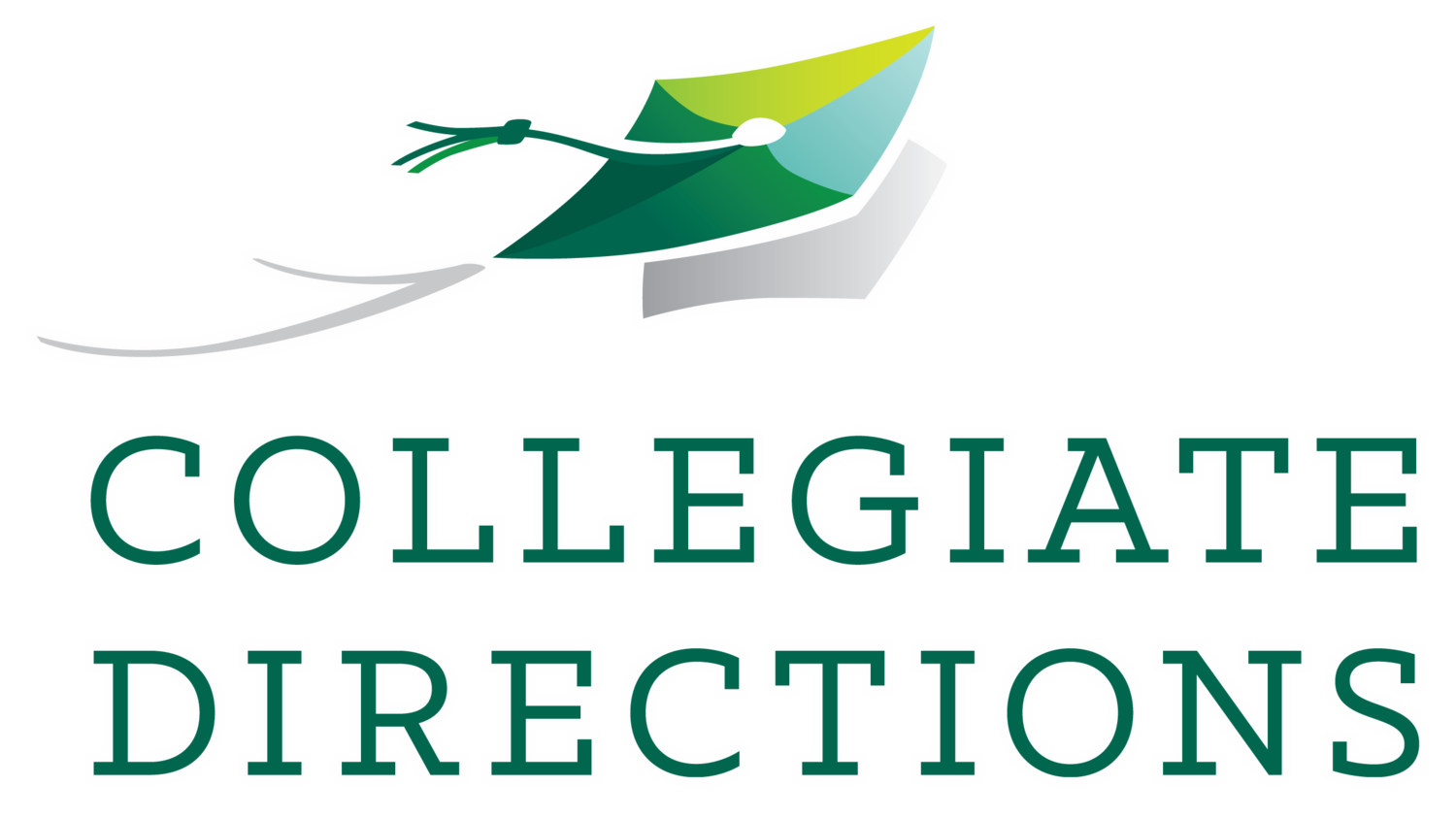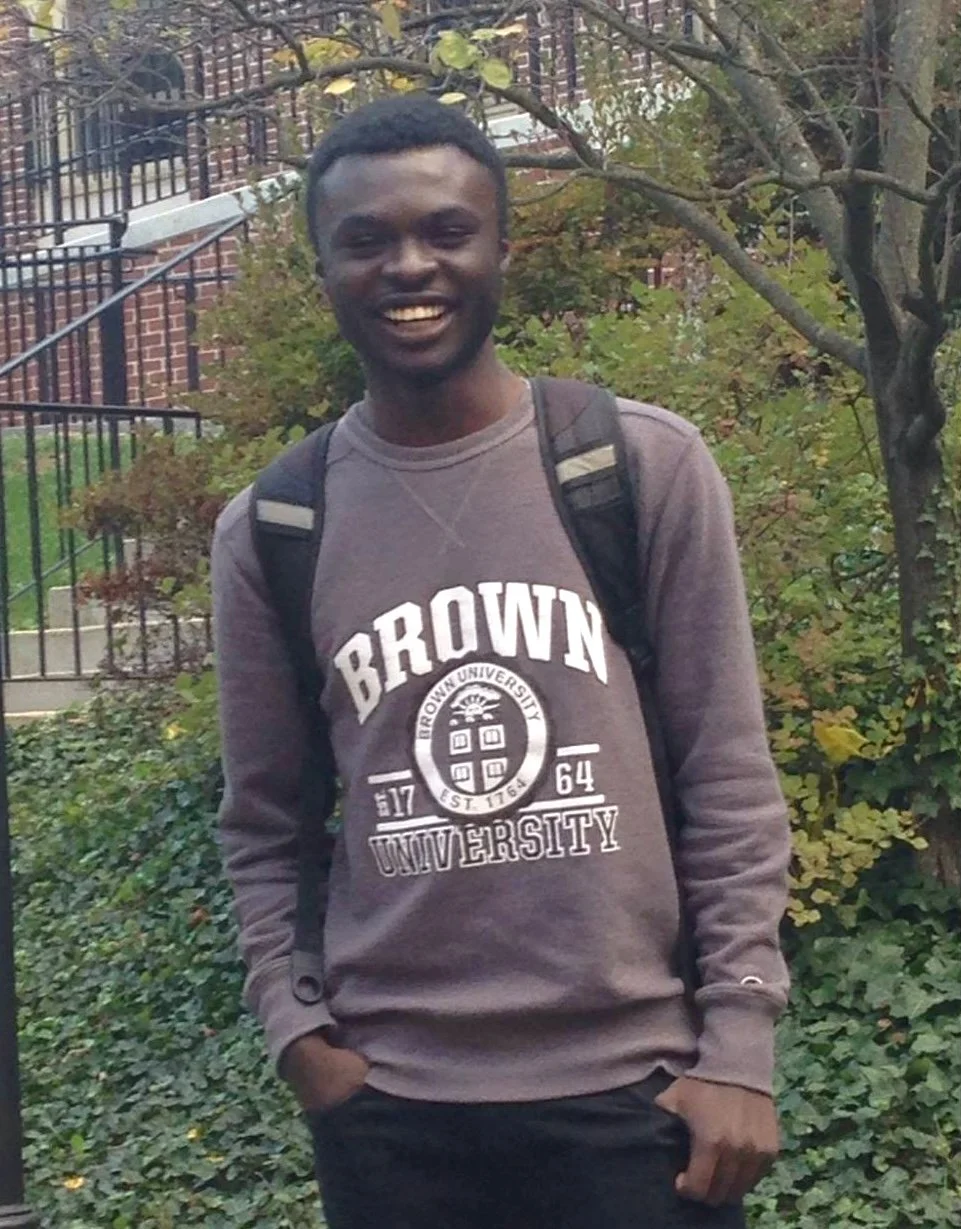CDI Scholars Are... Scientists Saving Lives
Anthony pictured with family at his Wheaton High School graduation.
Anthony’s official Yale University School of Medicine headshot.
Young, ambitious Anthony, CDI Class of 2014, knew one thing: a college education would be a stepping stone into a career in the health care field. But how to get there?
It was his CDI Counselor – with whom he still keeps in touch – who helped him navigate the many decisions that went into his college journey. “CDI was a monumental part of my high school experience.” From test preparation, to identifying the colleges that might be a good fit for him, to visiting them – which is how he fell in love with his alma mater, Brown University.
Initially, Anthony had wanted to attend a Jesuit university to align with his Catholic faith. He even applied to two early action! But he made an instant connection with the community at Brown. “I just felt so happy and felt like I could see myself belonging there,” he said with a smile. “I got back and told my counselor how much I loved that experience.” During his campus visit he attended classes, slept in the dorms, and discovered a robust community for first-generation-to-college students. “After I visited, I was like ‘man, this is the place I want to be.’”
One of his favorite aspects of his undergraduate education at Brown was their open curriculum. “I wanted to do public health, but I also got to do an internship in business and marketing, and it made me wonder how I could merge those two things together,” he shared. The liberal arts experience gave him the opportunity to explore many different topics and how they interacted.
Young Anthony shows off his Brown University pride.
Anthony ended up majoring in Biomedical Engineering, a field he had never considered. He credits a professor he had during his first semester with encouraging him on that path. “I tried it, I really liked it, and I stuck with it,” he said – something he encouraged current CDI Scholars to consider. “A lot of the opportunities I have come across because I’ve kept my options open and have been open to new ideas and new environments.”
While still in undergrad, he had the opportunity to work on Department of Defense funded research to develop new spinal implant materials that were more resistant to bacterial formation – a crucial tool in serving injured soldiers in war zones. It was that lab experience that opened his eyes to the possibility of going into medical research, instead of medical practice. His next experience was in his co-op year, where he interned with a company developing mechanical life support ventilators through a human-centered design approach – and this experience taught him that he enjoyed working in the industry side of things, too. “I really liked working in small teams, all working towards the same goal.”
As his time at Brown came to a close, he knew that he would want to attend graduate school, but he also wanted a break. Through the mentors he’d found in college, he was able to find the next right step for him: a research technician role with a bioengineering startup. It was his broad experience in medicine, research, and engineering that landed him the role.
When he joined the 6-month-old startup, he thought he’d stay a year or two – but he ended up spending the next four years there. The team was incredibly supportive, sending him to conferences, putting him in touch with people, and keeping his grad school aspirations in mind. “To this day, they’re still invested in my graduate education – my former boss still writes me recommendations for grant applications.”
But even more than the environment, the work drove him. They were developing a tool to quickly assess individualized cancer treatment options for patients with blood cancers – many of whom had “run out of options” after developing resistance to multiple forms of treatment. This inspired Anthony to learn more about the drivers of treatment resistance: finally, he knew what he wanted to study in graduate school. His team, ever supportive, encouraged him on the process, helped him with his applications, and provided flexibility for him to attend grad school interviews.
Anthony chose to embark on the path to earning his Ph.D. from the Yale School of Medicine. His current research builds upon the eclectic experiences he has had since his college years, and new things he is learning thanks to the flexibility of Yale’s graduate programming. His focus is on providing more options for patients with cancers that are negatively impacted by gene amplification – a process where a cell creates more than two copies of a cancer-driving gene. This, in turn, leads the cell to produce more of the protein, driving the cell to proliferate faster, compromise its DNA damage repair capability, and increase metastasis (when the cell leaves its location to infect other organs). In particular, he’s focused on ovarian cancer.
Upwards of 80% of patients with ovarian cancer identified in the later stages of the decease will experience recurrence.
Currently, the majority of ovarian cancer patients are diagnosed in the later stages of the disease, as there are no screening methods for ovarian cancer. As a result, patients have few treatment options, all of which are invasive and often agonizing – and which often leave room for recurrence down the line.
The way traditional treatments work is by binding to the protein molecule that’s causing the cancer, inhibiting further development. However, resistance develops over time, as the molecules adapt. Anthony’s idea is to develop a treatment that works by binding to a patient’s DNA, rather than the molecule. Once bound to the patient’s DNA, it is less likely to mutate significantly enough to create the resistance seen in traditional treatment. But the idea goes even further: it takes advantage of changes caused by the cancer itself. Cancers that rely upon gene amplification can grow unchecked because they first turn off the body’s natural mechanisms for repairing breaks or mutations. Anthony’s clever idea is to use that against the cancer cells, using medical intervention to cause even more breaks within the DNA. This leads to a situation where the cells are unable to repair the damage and instead die. His work is currently in the research phase, but he hopes that it will one day advance to clinical trials and show promise for providing new treatment options for ovarian cancer.
On top of everything he has achieved in his career so far, his proudest accomplishment is giving back. As a graduate student, he both teaches undergraduate courses and mentors first-generation-to-college students like he once was – but he also runs a critical thinking program for fifth graders in a local elementary school. “I teach them engineering design and help them think about themselves as scientists.” Last year, three of his students received prizes at the Connecticut Science & Engineering Fair.
Looking back at the path that has lead him to his current phase of life, Anthony can hardly believe it. “If you had told me back in tenth grade that I would end up at Yale doing this kind of research, I probably would not have believed you." To Anthony, his journey emphasizes the importance of strong support networks, being flexible and open to new experiences, and working hard to achieve your goals. "I think that kid would have been very proud of the work that I have put in.”
Your support of CDI extends beyond the impact it has on our Scholars – it improves our world. Nearly a quarter of CDI alumni have chosen fields in the health care sector, now working on the frontlines of health care, drug innovation, and medical research. When you give to support them, you make the world better for everyone.



